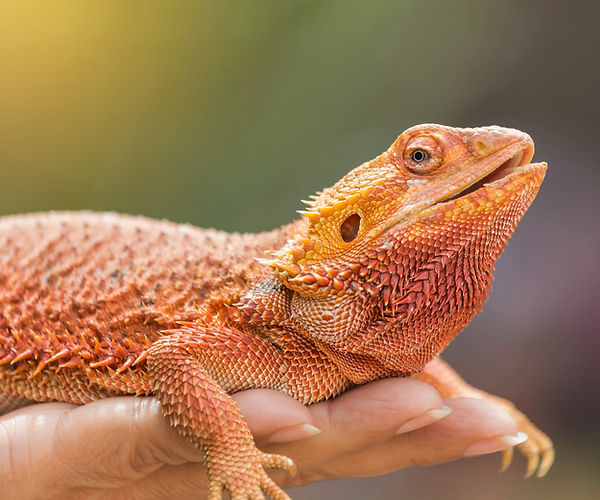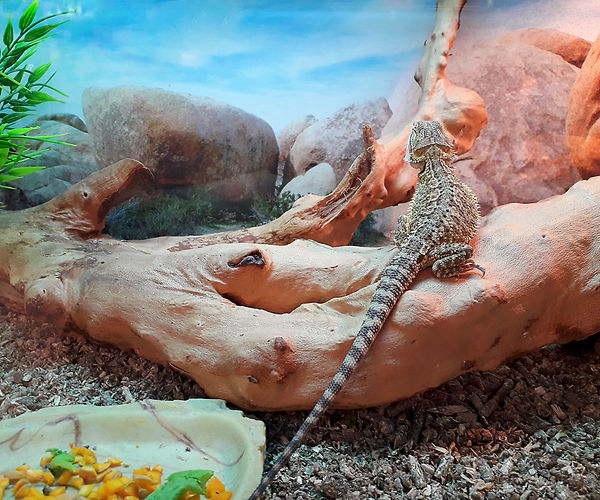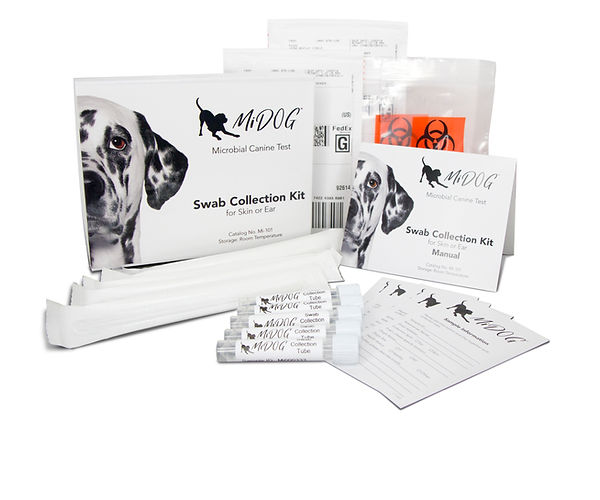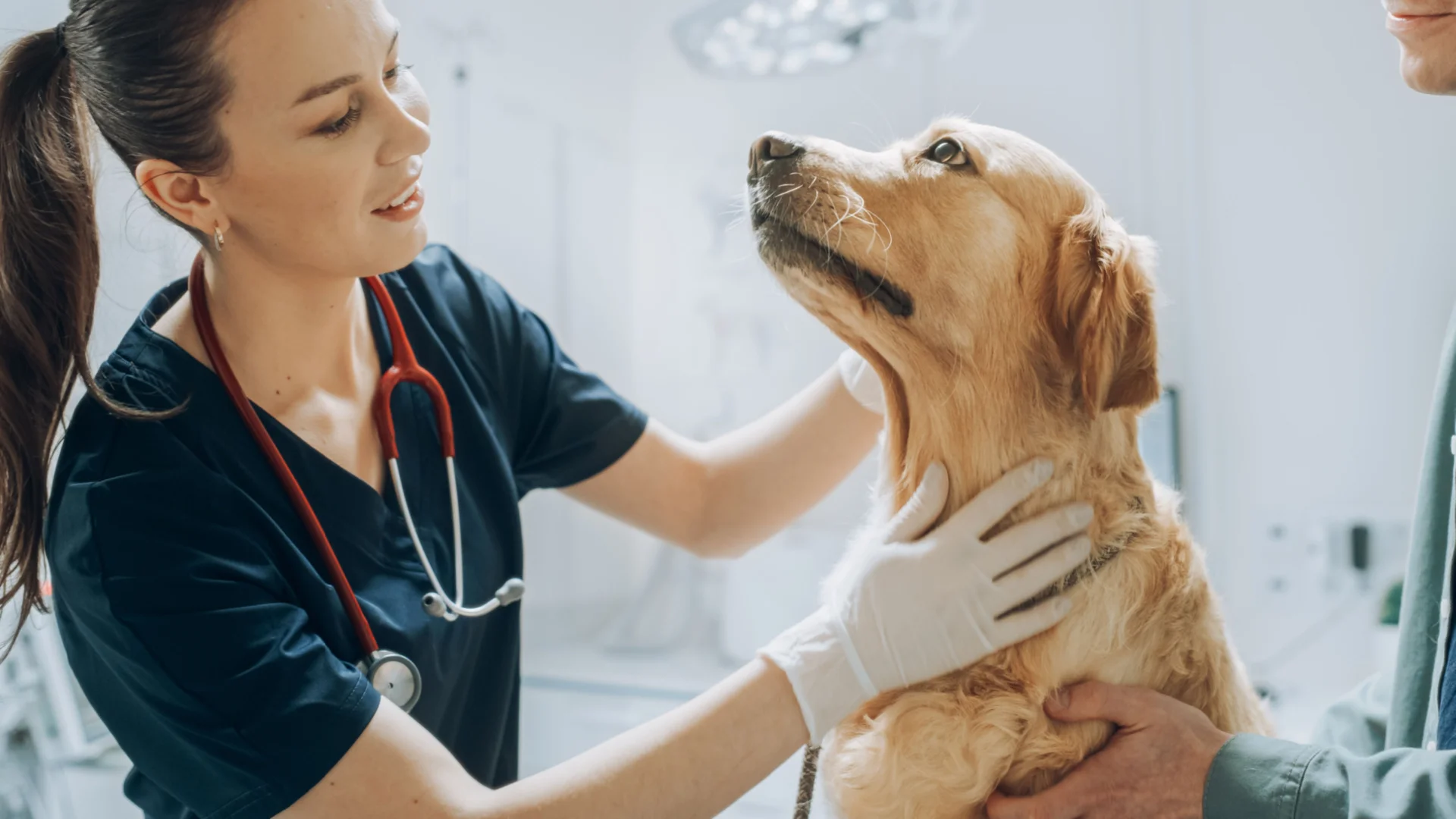
Bearded dragons are asymptomatic carriers of Salmonella.
In November 2020, 18 people infected with an outbreak strain of Salmonella were reported from 11 different states in the United States (thankfully there were no deaths!) [1]. Further evidence unveiled that contact with pet bearded dragons was the likely source of the outbreak [1]. Salmonella infections are zoonotic in nature, making them not only a veterinary health concern, but also a public health concern. While salmonellosis can affect a wide range of animals including birds, reptiles, amphibians, poultry, swine, cattle, and horses, this article will be focusing on how to diagnose Salmonella infections in bearded dragons, which are the most popular pet reptile [2].
The good news is that even if your bearded dragon is a carrier of Salmonella, your pet will likely be asymptomatic for life. However, it is important to test your pet’s stool in order to prevent infection for humans in the household. The even better news is that the transmission of Salmonella from bearded dragons to humans can easily be prevented with simple measures!
What is Salmonella?
Salmonella is a rod-shaped Gram-negative bacteria of the family Enterobacteriaceae, that has two species and six subspecies, which are divided into over 2,600 serotypes [3, 4]! In short, there is a great deal of variation between different serotypes of Salmonella that have been found to impact transmissibility and severity of infection in humans. In contrast to the human microbiome, the bearded dragon gut microbiome frequently hosts Salmonella [4]. These bearded dragons are considered clinically healthy, because Salmonella is actually a normal contributor to the reptile gastrointestinal flora [5].
In a study assessing the prevalence of Salmonella serotypes isolated from reptiles in Norwegian zoos, researchers found a 67% prevalence rate in lizards, 62% prevalence rate in snakes, and a 3% prevalence rate in chelonians [6]. These rates are notably only indicative of the prevalence of Salmonella in reptiles shedding the disease; considering the intermittent nature of Salmonella and how shedding of the bacteria may not occur with every stool sample, these numbers are likely underreported. Moreover, a total of 26 different serotypes were discovered, including Salmonella enterica spp. enterica and Salmonella enterica spp. arizonae, both of which have a high transmissibility rate to humans [6]. Other serotypes like S. enterica spp. diarizonae, salamae, and houtenae were also identified, but these have considerable lower transmissibility potential, making it clinically advantageous to know different serotypes when assessing transmission risks [6].

The image above depicts a healthy bearded dragon in a well-maintained terrarium.
Preventing Transmission of Salmonella Between Your Pets (And You!)
If your bearded dragon tests positive for Salmonella, it is extremely important to isolate your pet from other pets to prevent further transmission of the bacteria. In general, good animal husbandry can help prevent transmission of infections and shedding of pathogens. As the Manual of Exotic Pet Practice puts it, “the majority of diseases observed in captive reptiles are directly associated with improper husbandry” [7]. Notably, Salmonella is different in reptiles due to its asymptomatic nature. However, the Association of Reptile and Amphibian Veterinarians recognize that stress and compromised immune systems increase the rate of shedding in bearded dragons, making proper husbandry an important factor in decreasing transmission of Salmonella between bearded dragons and humans [8]. A proper diet is very important in maintaining optimal health for your reptile, as vitamin deficiencies can leave your reptile vulnerable to pathogens. And while it may seem obvious that cleaning your pet’s terrarium is important in warding off infections, cleanliness cannot be overstated.
Moreover, the CDC has several recommendations that every bearded dragon owner should follow, especially once a positive Salmonella cloacal test has occurred [1]. These recommendations include:
1. Pick the right pet for your family: reptiles and amphibians are not recommended for families that have children under 5 years old, adults over 65 years old, or people with weakened immune systems.
2. Wash your hands: always wash your hands thoroughly with soap and water after touching, feeding, or caring for your pet. Supervise handwashing for children.
3. Keep it clean: keep reptiles and amphibians out of the kitchen, and if you clean their supplies indoors make sure to use a laundry sink or bathtub that can be thoroughly cleaned and disinfected right after.
4. Play safe: do not kiss/snuggle/hold your reptile close to your face, do not let your scaly friend roam free in your home, and do not touch your mouth after handling your pet.
Should I Treat My Bearded Dragon if They Test Positive for Salmonella?
Nope! Once your bearded dragon is a carrier for Salmonella, they will likely always be a carrier [8]. Unnecessary antibiotic courses to eradicate Salmonella from your reptile’s gut flora actually may not only be harmful for your reptile by disrupting their natural microbiome, but may also create antibiotic-resistant strains of Salmonella that can become even more harmful should it transmit to a human. To underscore, Salmonella is not harmful for your pet, but can be harmful to you. The good news is, as long as you as a pet owner follow CDC guidelines, the transmission of Salmonella from your bearded dragon to you is much less likely.
Diagnosing Salmonella in Reptiles
Because Salmonella is zoonotic, it is important to make sure your reptile is visiting their exotic pet veterinarian once a year to test for various infections. Historically, culture-based methods have been used to assess the possible Salmonella presence, but there are notable diagnostic shortcomings. Next-Gen Sequencing (NGS) has provided superior detection capabilities for Salmonella, due to its ability to reliably predict Salmonella serotypes [9]. One study determined that using NGS “as the sole method for Salmonella serotyping can have numerous advantages as it allows for very quick and accurate serotype predictions, detailed genetic information (antimicrobial resistance and virulence), significant budgetary savings, and reduced labor requirements” [9]. The clinical applicability for bearded dragon pet owners is significant and should be brought up with your exotic pet veterinarian.
Despite its name, the MiDOG All-in-One Microbial Test may provide the answer to the diagnostic conundrum that Salmonella poses for you and your reptile. Utilizing NGS technology to detect and quantify all microbial DNA through untargeted and comprehensive sequencing and quantitative comparisons to reference databases, the MiDOG NGS technology provides a useful opportunity to shed light on the microbial makeup of your reptile’s fungal infection for clinical application. The MiDOG microbial test is grounded on scientific research that provides veterinarians DNA evidence for the guided treatment of reptile infections, such as salmonellosis.

Find out if your vet uses MiDOG before you book your next appointment!
For health-related questions about your reptile or other exotic pet, reach out to a veterinarian that specializes in exotic pets.
References:
[1] CDC. 2022. Salmonella Infections Linked to Pet Bearded Dragons. [online] Available at: <https://www.cdc.gov/salmonella/muenster-10-20/index.html> [Accessed 30 March 2022].
[2] Valdez, J., 2021. Using Google Trends to Determine Current, Past, and Future Trends in the Reptile Pet Trade. Animals, 11(3), p.676.
[3] Giannella RA. Salmonella. In: Baron S, editor. Medical Microbiology. 4th edition. Galveston (TX): University of Texas Medical Branch at Galveston; 1996. Chapter 21. Available from: https://www.ncbi.nlm.nih.gov/books/NBK8435/
[4] Ogunremi, D., Dupras, A., Naushad, S., Gao, R., Duceppe, M., Omidi, K., Márquez, I., Huang, H., Goodridge, L., Lévesque, R., Hasan, N., Dadlani, M., Dixon, B., Magierowski, S. and Masson, L., 2020. A New Whole Genome Culture-Independent Diagnostic Test (WG-CIDT) for Rapid Detection of Salmonella in Lettuce. Frontiers in Microbiology, 11.
[5] Diver, S., 2020. Bacterial Diseases of Reptiles – Exotic and Laboratory Animals – MSD Veterinary Manual. [online] MSD Veterinary Manual. Available at: <https://www.merckvetmanual.com/exotic-and-laboratory-animals/reptiles/bacterial-diseases-of-reptiles> [Accessed 30 March 2022].
[6] Bjelland, A., Sandvik, L., Skarstein, M., Svendal, L. and Debenham, J., 2020. Prevalence of Salmonella serovars isolated from reptiles in Norwegian zoos. Acta Veterinaria Scandinavica, 62(1).
[7] Deczm, M. M. D. M. P. & Tully Jr. DVM MS DABVP (Avian) DECZM (Avian), Thomas N. (2008). Manual of Exotic Pet Practice (1st ed.). Saunders.
[8] https://arav.org/salmonella-reptiles-amphibians-veterinary-guidelines/. 2018. Salmonella in Reptiles and Amphibians. [online] Available at: <https://arav.org/salmonella-reptiles-amphibians-veterinary-guidelines/> [Accessed 30 March 2022].
Ibrahim, G. and Morin, P., 2018. Salmonella Serotyping Using Whole Genome Sequencing. Frontiers in Microbiology, 9.
Categories: Bearded Dragons, Exotic Pets, Next-Gen DNA Sequencing Technology, Reptiles/Amphibians

